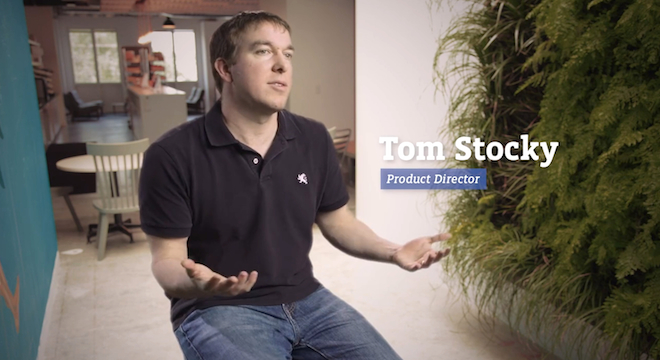Facebook unveiled an advanced new search engine for its website on Tuesday, Graph Search. But it didn’t create the new feature on its own: Following the announcement, Facebook and Microsoft revealed that engineers from both companies collaborated to display Web results in Graph Search.
Facebook founder and CEO Mark Zuckerberg said he considered working with Google on search, but any potential collaboration fell apart over Facebook’s privacy concerns with the search giant, according to a report in Bloomberg Businessweek.
Microsoft’s Bing Team explained the collaboration in a company blog post on Tuesday:
“As part of this [Graph Search] product, our two engineering teams worked together to advance a unified search experience. That means that when people want to search beyond Facebook, they see web search results from Bing with social context and additional information such as Facebook pages.
To the Facebook user, they will not only see useful results, but we think have serendipitous experiences. Imagine searching for Jay-Z concerts on Facebook, and not only finding Facebook content, but also web results from Bing including concert tickets, news about the tour and other web results–annotated with Facebook Likes and Shares. We think this is a powerful combination.”
The combination is certainly important for Facebook and Microsoft’s ongoing alliance. The two companies have held some mutual interest since 2007, when Microsoft invested $240 million in the then three-year-old, private social network, for a 1.6 percent stake, valuing Facebook at a then surprising $15 billion (Facebook’s market capitalization as of Tuesday evening was $65.21 billion on the NASDAQ.)
Microsoft, which is playing a long game of catch up against Google in general Web search, has previously taken steps to bolster the social results that appear on Bing search in an effort to gain a competitive advantage over Google. In May 2012, Microsoft added a social “sidebar” to Bing results that displays relevant Facebook content for users who have elected to sign into Bing with their Facebook accounts. Later that summer, Microsoft also added a way to search Facebook Photos directly through Bing.
But the collaboration apparently goes both ways. Now, results from Bing are being piped back into Facebook Graph Search when users search for information that isn’t available on Facebook, such as updated weather forecasts.
Oddly, though Zuckerberg highlighted the Bing results in his presentation of Graph Search at Facebook’s Menlo Park headquarters Tuesday, per a report from The Verge, Facebook didn’t make mention of Bing in a post on its engineering blog describing some of the behind-the-scenes development of Graph Search. Neither did a separate behind-the-scenes report from Wired magazine.
However, Zuckerberg told Bloomberg Businessweek on Tuesday that Facebook had engaged in talks with Google about some sort of search collaboration, but the two had parted ways on that topic because Google would not allow Facebook to de-list content from search results that users had changed to private. As Bloomberg Businessweek reported:
“When asked why the company was not working with Google, Zuckerberg said that previous discussions collapsed over Google’s unwillingness to accommodate Facebook’s privacy needs. For example, he said, Facebook wants its search engine partners to remove certain pieces of content from its index, such as photos, when its users change the privacy setting.”
TPM has reached out to Google for its statement on the conversations with Facebook and will update when we receive it.
Facebook and Google do have other notable connections.
Lars Rasmussen, a former Google engineer who led Google’s failed Wave product, joined Google in 2010 and then was personally asked by Zuckerberg to join Facebook’s search team. He later worked on the development of the project that would become Graph Search, according to Wired, and authored Facebook’s post on developing Graph Search published Tuesday. Another Google engineer, Tom Stocky, joined Facebook’s Graph Search team as well, and can be seen promoting the product in a Facebook video released Tuesday.






